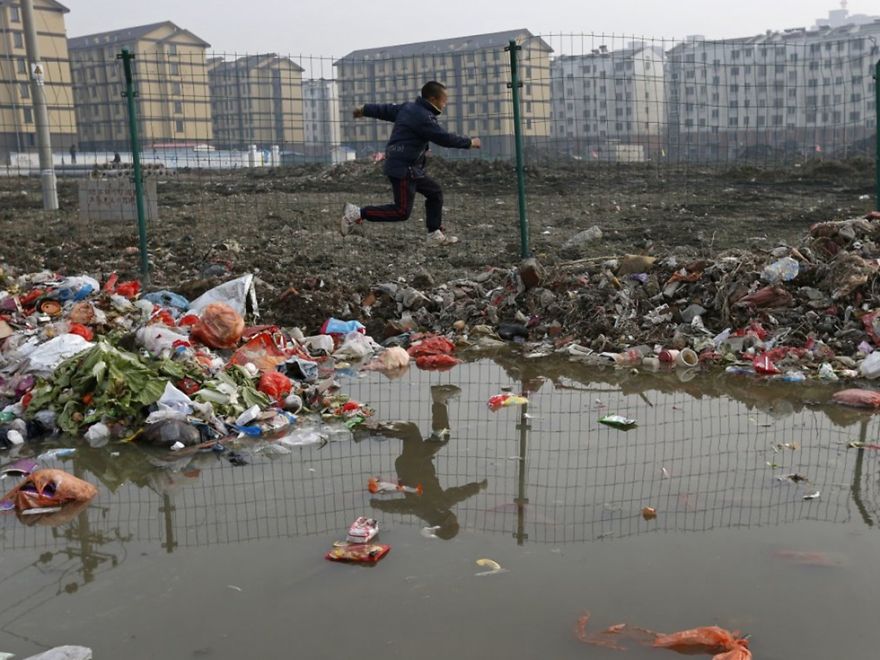– Furious China Lashes Out At Critics Of Its Rigged GDP Data (ZeroHedge, July 17, 2015):
That China has been fabricating its economic data has been clear to virtually anyone who has cared to look at the epic discrepancy between China’s goalseeked headline GDP and its consistent components (a recent snapshot was shown in “Beijing, You Have A Big Problem – In Ten Charts“).
However, while the sellside has been grudglingly willing to play ball with data that is as centrally-planned and as artificial as China’s stock “market” the recent disclosure of the Q2 GDP print of precisely 7.0% may have been the straw that finally broke the camel’s back, leading to a chorus of revulsion and complaints from even the “most serious people” that China is cooking its books.
The reason, as we showed previously, is that China is now resorting to such childish manipulation methods that it has become impossible to ignore them even among those who have tacitly agreed to stick their heads in the sand, and diplomatically talk up Chinese numbers. Which in turns lead to a narrative breakdown and for once, China has been faced with official allegations it is openly fudging its economic growth statistics which come at a time when many suspect Chinese growth is flat if not in outright decline.
So how does China respond? One way is petulantly protesting too much, and in the process admitting it is all fake:
- CHINA’S GDP ‘NOT OVERESTIMATED’, NBS SHENG SAYS
But a far better way is by writing scathing essays that lash out at all those who dare to call a spade a spade. Such as what this Global Times op-ed has done. Because while the US is doing its best to manipulate its own economic data with the same facility as China, it still has to learn a thing or two about the propaganda required to defend such fabrications.
So without further ado here, straight out of China, is the reason why…
Accusations over GDP figures are frivolous
Several mainstream Western media outlets have questioned the authenticity of China’s second quarter GDP growth of 7 percent, claiming that the National Bureau of Statistics (NBS) faked the figures to boost investors’ confidence. They have this skepticism simply because the GDP growth rates in Q1 and Q2 happened to be identical, which also coincides with China’s yearly growth target of 7 percent.
The questioning does not display logic and is even frivolous. It is disappointing to learn that the Western media’s displeasure with the GDP figures reveals the wish for slow growth in China.
Working out the statistics for the Chinese economy is immensely challenging and it is hard to be absolutely accurate. No wonder the West has questions about the methodology. But different methods will not affect the authority of the NBS figures.
It is alluring to have economic statistics made on the government’s will, which perhaps exists widely, but the Chinese government can resist this temptation. As it is illegal to fake NBS data, the assumption that the Chinese government can easily exert its will on the NBS actually misrepresents the government’s operation model.
Despite the lowest GDP growth rate, the Chinese economy is not in its hardest times because the slowdown has greatly declined and the public has adapted to the current growth and even a lower rate. As faking a 7 percent figure takes more risk than releasing a lower but real one, China has no motives to forge the data.
The NBS has released numerous economic figures that may not look entirely ideal for China at the time. And today, the anti-corruption campaign has made all the officials more aware of the cost for any misdeed. It is hence groundless to suspect the NBS faked its statistics.
Since the number is 7 percent for two consecutive quarters, a few foreign media outlets were getting jittery. Accusations of crooked statistics are based on unprofessional questions, almost cheap complaints. The growth goal set by the government is around 7 percent, not 7 percent exactly. Since the third and fourth quarter’s growth will probably beat it, the yearly data will likely be higher than 7 percent.
Doubtless, questions about economic statistics also stem from a lack of government credibility. Agencies that are supposed to be credible are under pressure to prove themselves.
Western media often paints a different picture when explaining the Chinese economy. However in hindsight, they either misread the Chinese economy or make wrong conclusions in most cases. They should set the record straight now.


